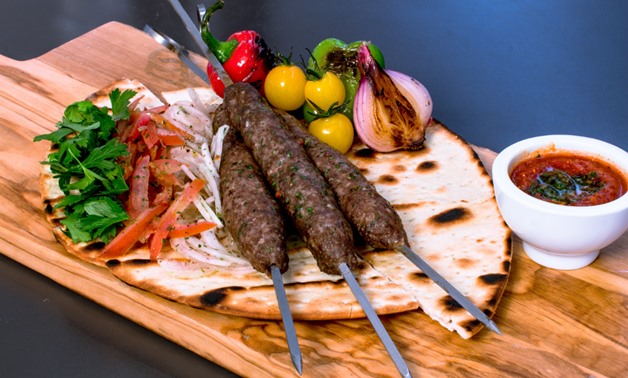
Stock photo
Ramadan comes with its own traditions, main courses and desserts—and of course, its very own businesses. With iftar and sohour being the two major meals during the holy month, restaurant owners must adapt and coordinate their menus and operations accordingly.
Mona El Banna, owner of MonAppetit cooking academy, tells us that unlike the changing operations, the sets of rules to maintain a successful business and loyal clients remain unchanged. El Banna explains that having a successful restaurant with loyal customers, in Ramadan and all year long, hangs on three critical pillars: management, operations and consistency.
On a mission to train amateur chefs and restaurant owners to become certified professionals in cooking and operation management, El Banna launched MonAppetit culinary and hospitality academy in 2014 to offer cooking classes for all different appetites, from authentic Egyptian cuisine to international favorites like sushi. She tells us about the business of cooking classes and how restaurants adapt their operation to fit with the demands of the holy month.
Is there a demand for cooking lessons nowadays? Who signs up for them?
Lately, people have been more interested in cooking lessons because being a chef now is trendy. Those who come to MonAppetit academy are usually foodies who like to learn new recipes, or amateur chefs who try to broaden their cooking abilities, and small business owners who look for new recipes and want to learn how to start their food business, to calculate inventory and basics about how to operate. We also get working chefs who are eager to learn new techniques or want to learn a new specialization in the kitchen.
Many people eat out in Ramadan; how do restaurants and suppliers manage the increase in demand and how much do they gain from it?
Ramadan is the high season of the year to any restaurant, hyper markets or food suppliers in Egypt. They manage the increase in demand by offering less product ranges to be able to control the operations during iftar and sohour. Of course, they make a lot of money during this month because people now tend to cook less, so they usually eat out or cater; and during this month restaurants tend to decrease the amounts served so the profit is much more.
What are diners looking for on the menu during Ramadan other than the traditional dishes?
Diners usually look for new recipes for desserts. Every Ramadan, a new item is introduced and people like to try new desserts. Like last year, it was red velvet on everything. This year it is the biscoff.
Is there a higher demand for healthy dishes and organic produce during the holy month?
Unfortunately, no. People in Ramadan usually go to the fattier dishes, just because it’s a tradition.
When it comes to restaurant owners, what preparations do they need to put in place in Ramadan?
Operations, operations and operations! Ramadan is all about being able to accommodate the number [of diners] in a certain time, eating at the exact moment. And this is very tough to do. It all boils down to the management of the restaurant.
Maintaining a good, high-quality reputation in the dining industry can be hard; what should restaurant owners be doing to earn diners’ loyalty?
Consistency in the ingredients they use, consistency in the service they offer, consistency inside the kitchen and introducing new items every once in a while are all key elements of maintaining loyal customers.
The quality of the dish depends on several elements that must all be in coordination with each other to serve a whole, well-rounded experience for the diners. What are those elements and how can they be achieved?
First of all, the ingredients must be of good quality, which is very hard to achieve nowadays because the cost of ingredients has increased tremendously. Second, the cooking method [is important]; our problem in Egypt is that the food is usually over cooked. Third, the plating or the presentation of the dish.
What tools does a chef need to run a successful kitchen? And what about restaurant owners?
Management. Chefs and business owners need to study how to manage a kitchen and a restaurant. The problem in Egypt is that business owners usually do not have any background about F&B businesses. And chefs usually learn how to be only chefs without getting to learn about operations, and how to run and manage a kitchen.
There is a culinary movement in Egypt; does it play a part in the fact that more people are studying it professionally?
Yes, as I said, becoming a chef now is trendy. And in the Middle East, a chef has to be certified in order to work in a restaurant or a hotel. That’s why many people are asking for certified programs; to be able to work.
Home-catering businesses are another huge trend; are they here to stay?
I believe, yes. The F&B industry in Egypt is booming now. More and more people are exposed to new cuisines and they want to try them out, either through eating out in restaurants or ordering home delivery by caterers.
How does catering affect the restaurant business?
I believe they do not affect each other, because each has different target audiences.
People usually want catering for big events at corporates or homes. This is why some restaurants provide catering; to be able to cover more than one target audience segment.
Are people eating out less?
Not at all. People now eat less at home. People like to eat out and to try new things; as the options grow and grow, people will want to eat out more.

Comments
Leave a Comment